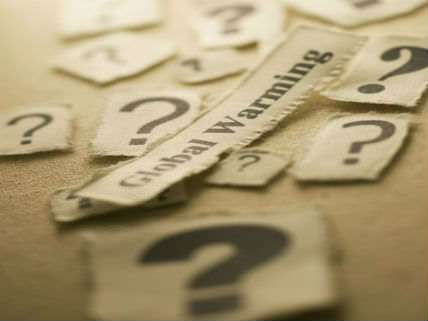Climate Wars and the Damage Done to the Credibility of Science
Matt Ridley explains how he lost trust in climate science

Over at the Quadrant, my friend science journalist Matt Ridley has a fantastic article, "The Climate Wars' Damage to Science" in which he despairingly explains how he lost trust in climate science. Even worse, Ridley also fears that the top-to-bottom of politicization of climate science will comprehensively undermine the public's trust in the whole scientific enterprise with huge consequences for the future.
Ridley is a "lukewarmer." He writes:
These [green advocacy] scientists and their guardians of the flame repeatedly insist that there are only two ways of thinking about climate change—that it's real, man-made and dangerous (the right way), or that it's not happening (the wrong way). But this is a false dichotomy. There is a third possibility: that it's real, partly man-made and not dangerous. This is the "lukewarmer" school, and I am happy to put myself in this category. Lukewarmers do not think dangerous climate change is impossible; but they think it is unlikely.
I find that very few people even know of this. Most ordinary people who do not follow climate debates assume that either it's not happening or it's dangerous. This suits those with vested interests in renewable energy, since it implies that the only way you would be against their boondoggles is if you "didn't believe" in climate change.
I, too, think that man-made warming is a happening, but am a bit more concerned than Ridley about the possibility of significant harm over the course of this century. However, the castrophists' sweeping policy prescriptions that would require massive economic sacrifice and the forfeiture of liberty to address climate change are certainly wrong. Ridley points out that the "consensus" of U.N.'s Intergovernmental Panel on Climate Change actually encompasses the lukewarm position:
The IPCC actually admits the possibility of lukewarming within its consensus, because it gives a range of possible future temperatures: it thinks the world will be between about 1.5 and four degrees warmer on average by the end of the century. That's a huge range, from marginally beneficial to terrifyingly harmful, so it is hardly a consensus of danger, and if you look at the "probability density functions" of climate sensitivity, they always cluster towards the lower end.
What is more, in the small print describing the assumptions of the "representative concentration pathways", it admits that the top of the range will only be reached if sensitivity to carbon dioxide is high (which is doubtful); if world population growth re-accelerates (which is unlikely); if carbon dioxide absorption by the oceans slows down (which is improbable); and if the world economy goes in a very odd direction, giving up gas but increasing coal use tenfold (which is implausible).
But the commentators ignore all these caveats and babble on about warming of "up to" four degrees (or even more), then castigate as a "denier" anybody who says, as I do, the lower end of the scale looks much more likely given the actual data. This is a deliberate tactic. Following what the psychologist Philip Tetlock called the "psychology of taboo", there has been a systematic and thorough campaign to rule out the middle ground as heretical: not just wrong, but mistaken, immoral and beyond the pale. That's what the word denier with its deliberate connotations of Holocaust denial is intended to do. For reasons I do not fully understand, journalists have been shamefully happy to go along with this fundamentally religious project.
In any case, Ridley is right to worry that the shenanigans of certain prominent climate change catastrophists could comprehensively undermine science as an institution. Ridley quotes Australian climate scientist Garth Paltridge:
We have at least to consider the possibility that the scientific establishment behind the global warming issue has been drawn into the trap of seriously overstating the climate problem—or, what is much the same thing, of seriously understating the uncertainties associated with the climate problem—in its effort to promote the cause. It is a particularly nasty trap in the context of science, because it risks destroying, perhaps for centuries to come, the unique and hard-won reputation for honesty which is the basis for society's respect for scientific endeavour.
Just so. Ridley also goes through the various scandals of climate data manipulation and celebrates the critics who are trying to hold the climate science establishment to account. The whole article is well worth your attention.


Show Comments (50)